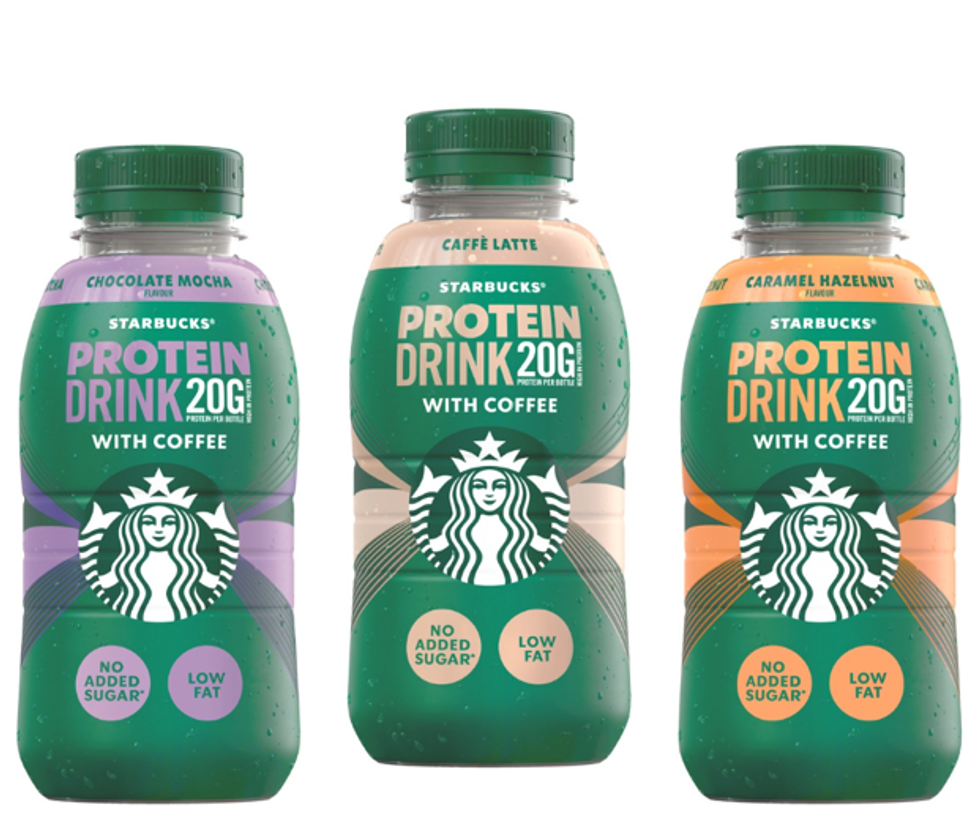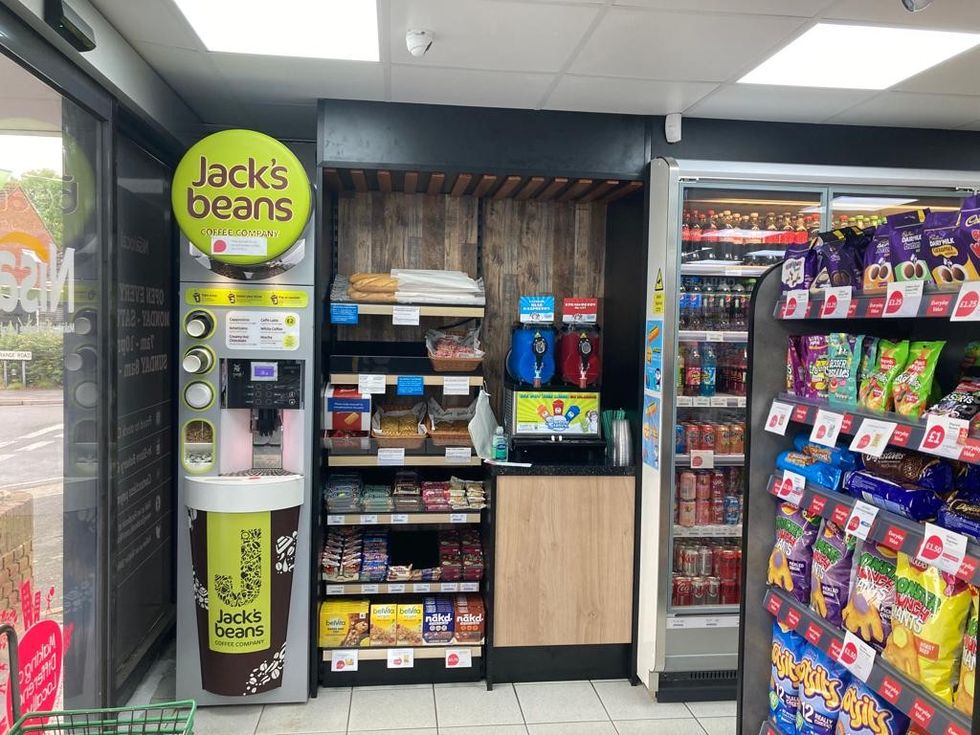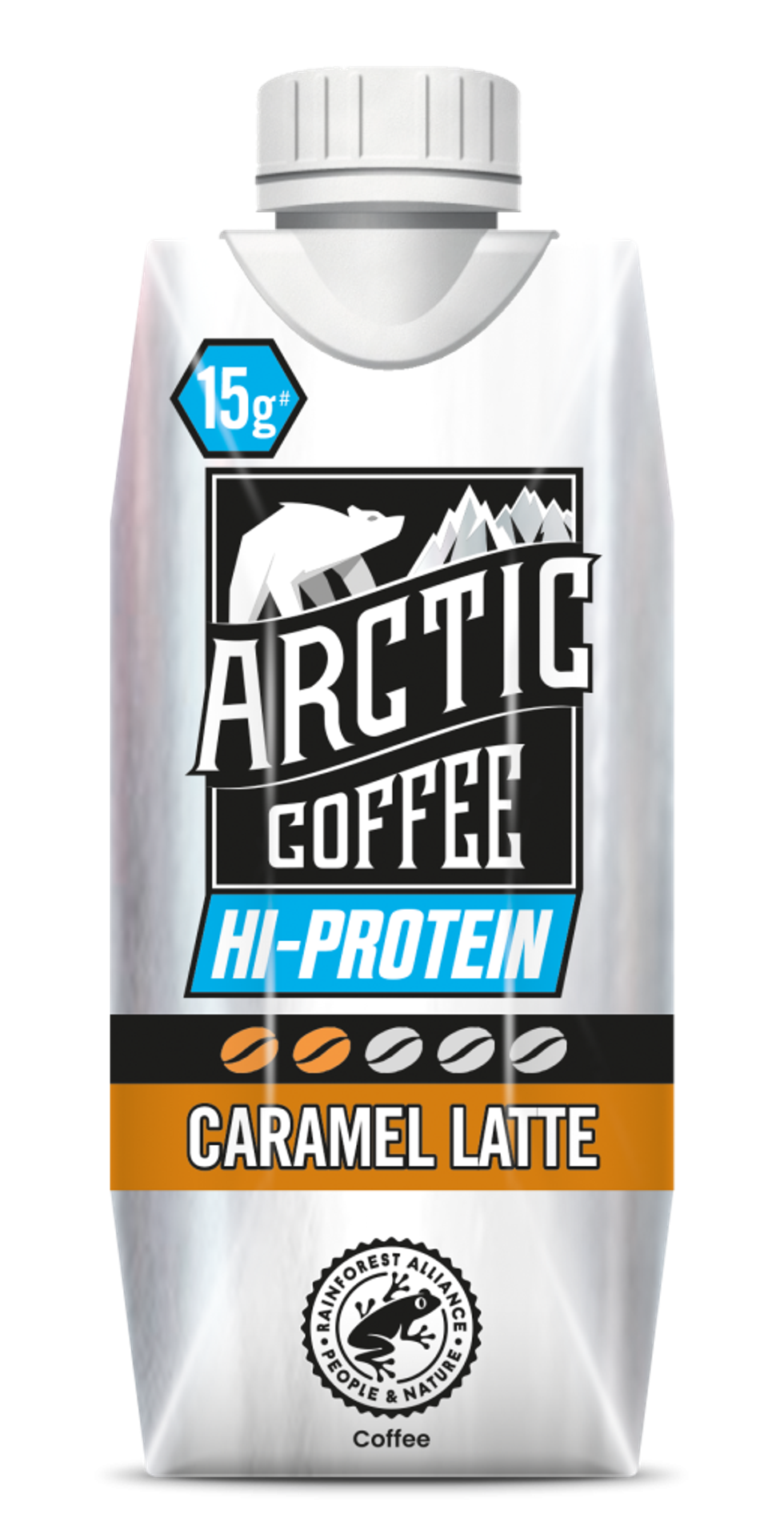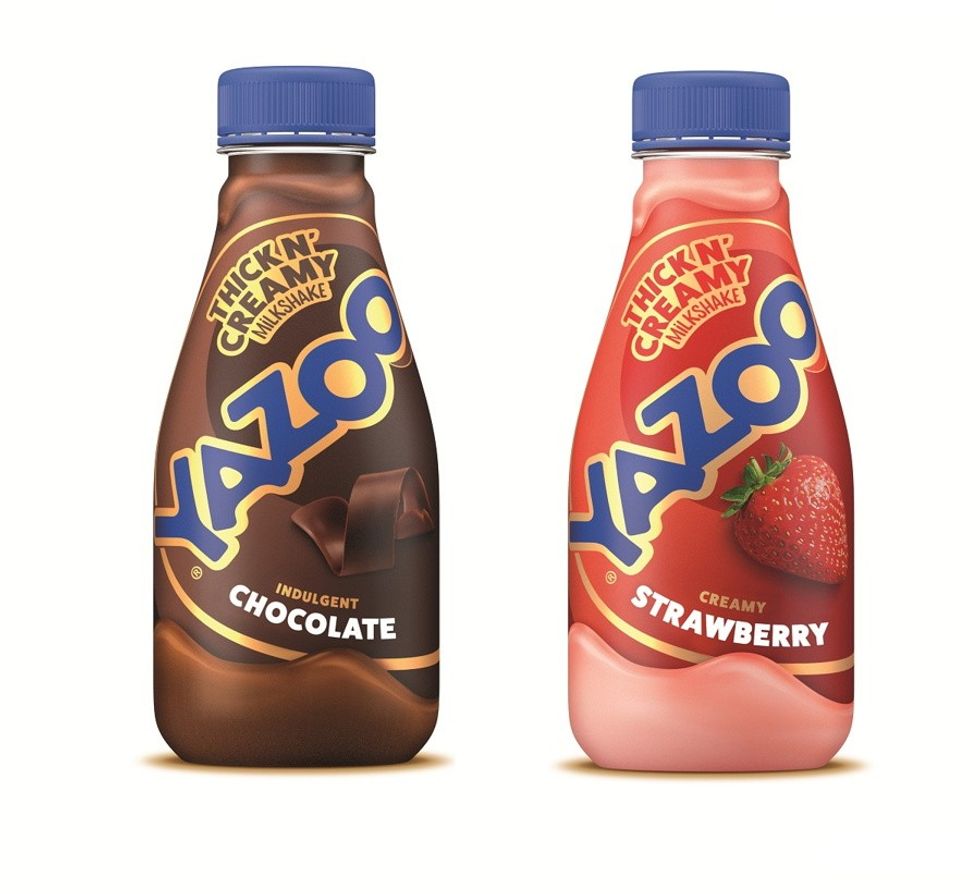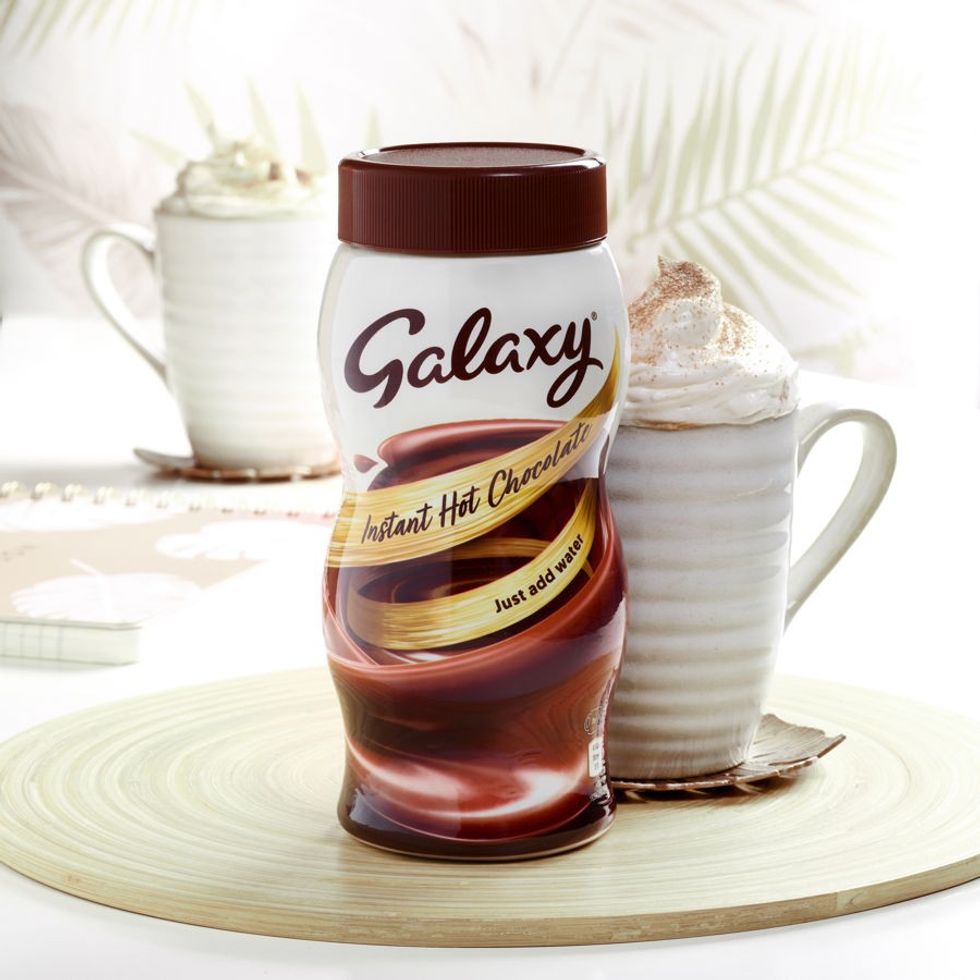Consumer expectations for taste and quality continue to grow more sophisticated, and the category is rising to the challenge
The UK has experienced a revolution in tastes, with an expansion of coffee and tea varietals reflecting the growing sophistication of the British palate. It's now common for consumers to keep exotic teas and coffee blends alongside regular teabags and jars of instant coffee – categories that themselves offer an array of diverse choices. This evolving preference, paired with the convenience of beverages-to-go, presents a lucrative opportunity for convenience retailers. The food-to-go element of hot beverages, alongside the established appeal of drinks made and consumed at home, promises to be a key driver of sales, especially as more people return to the office.
Ally for better health
Coffee is no longer just a daily pick-me-up – it's becoming a health-conscious choice for many. A groundbreaking study from Suzhou Medical College of Soochow University in China, published in the Journal of Clinical Endocrinology & Metabolism, has revealed significant health benefits associated with moderate coffee consumption.
The research found that drinking three cups of coffee per day – or consuming 200-300 milligrams of caffeine – could reduce the risk of developing multiple cardiometabolic conditions by an impressive 40-48 per cent. These conditions, including diabetes and heart disease, are becoming increasingly common as global populations age, making these findings particularly relevant.
Interestingly, the study showed that individuals who consumed moderate amounts of coffee or caffeine had the lowest risk of developing cardiometabolic multimorbidity, the onset of two or more metabolic disorders.
For the study, the researchers analysed information of over 172,000 people taking caffeine with that of 188,000 people consuming coffee and tea, using data from the UK Biobank.
While coffee and tea are known for their caffeine content, it’s worth noting that caffeine is also found in energy drinks, chocolates, and certain snack bars, all of which contribute to daily intake. Though the protective effects of coffee and caffeine on single metabolic conditions have been explored in previous studies, this research sheds new light on their potential role in preventing multiple diseases.
“The findings highlight that promoting moderate amounts of coffee or caffeine intake as a dietary habit to healthy people might have far-reaching benefits for the prevention of cardiometabolic comorbidity,” wrote lead author Chaofu Ke from the School of Public Health at Suzhou Medical College.
For convenience retailers, this health-related discovery opens up new avenues to promote coffee not just as an energising beverage, but also as a preventative tool for some of the most prevalent health issues today. As more consumers seek out drinks that offer health benefits, retailers can position coffee as a wellness product, highlighting its potential to reduce the risk of serious conditions like diabetes and heart disease.
Growth of chilled coffee
As consumer preferences evolve, the Ready-to-Drink (RTD) chilled coffee sector has emerged as a fast-growing and highly profitable category, worth more than £300m and growing in value and volume in GB [Nielsen]. It is a highly incremental category and at the end of 2023, more than a quarter of UK households were purchasing RTD coffee [Kantar].
“Chilled coffee remains a comparatively new concept for much of the UK population. However, there is consistent momentum around more people buying into the sub-category, with greater frequency and in greater weight,” notes Adam Hacking, Head of Beverages at Arla.
Worth £145m, Starbucks chilled coffee is the leading player within the category [Kantar/Neilsen, 52w/e 27.01.24]. The brand has continued to grow with an 18 per cent value and 25 per cent volume increase in the last 12 months, gaining a 3.3 per cent value market share in the past year.
Amy Burgess, Senior Trade Communications Manager at Coca-Cola Europacific Partners (CCEP), notes that successful chilled coffee ranges benefit from strong brand recognition and variety, as she emphasises the importance of Costa Coffee’s RTD range.
“Costa Coffee’s RTD range taps into the popularity of the Nation’s Favourite Coffee Shop for the past 14 years, with a unique ‘coffee-first’ proposition centred around Costa’s Mocha Italia Signature Blend. It is also one of the only full ranges in the segment to be 100 per cent HFSS-compliant,” she says.
“Featuring Lattes, Flat Whites and Frappés, Costa’s range caters to a broad variety of different tastes and occasions, offering shoppers a choice of low, medium and high intensity caffeine options as well as different coffee flavours and levels of sweetness.”
At the beginning of the year, CCEP launched PMP versions of the Costa Coffee Latte and Caramel Latte RTD ranges, offering a unique selling point exclusive to convenience retailers to help enhance their competitive edge when it comes to the RTD chilled coffee segment.
This summer has seen a new on-pack promotion across the Costa Coffee RTD chilled coffee range, giving consumers the chance to win tickets to some of the UK’s biggest music festivals, including Cornwall’s own surf and music festival, Boardmasters – which Costa Coffee partnered with for 2024.
Similarly, Arla’s Starbucks portfolio provides a broad selection of chilled coffee formats. Hacking recommends stocking a variety of flavours and pack types to meet customer needs.
“Consumers like variety when it comes to chilled coffee, so Starbucks recommends stocking a range of flavours to reach the broadest audience possible,” he says.
Must-stock products include the Starbucks Chilled Classics (Caffè Latte, Skinny Latte and Caramel Macchiato), Frappuccinos (Caramel and Coffee), and Doubleshot Espresso, along with the Oat Based Vanilla Macchiato, offering something for every demographic.
The brand launched its debut protein drink as part of their ready-to-drink range (RSP £2.75) in June. Crafted from a smooth blend of Starbucks Arabica Coffee, with 20g protein per bottle (330ml), creamy low-fat milk, and no added sugar (contains naturally occurring sugars), Starbucks Protein Drink with Coffee is available in three variations: Caffe Latte, Chocolate Mocha flavour, and smooth Caramel Hazelnut flavour.
The high-protein range adds strength to the protein category which has seen exponential growth, increasing in value from £46m in 2021 to £147m in 2024 [Nielsen].
“Offering the delicious flavour you’d expect from the UK’s number one RTD chilled coffee brand, with the added benefit of being a convenient, high-protein beverage, the innovation can be enjoyed on-the-go to support active lifestyles,” Hacking says.
Created with an active lifestyle in mind, the Starbucks Protein Drink with Coffee is designed to be enjoyed, whenever consumers need it. The high protein content supports daily protein intake, without compromising on taste.
Meanwhile, Jimmy’s Iced Coffee is also helping retailers answer consumer demand for on-the-go protein beverages, with the launch of its brand-new collaboration with Myprotein in March this year. Available in Original and Caramel flavours, Jimmy’s Myprotein Iced Coffee contains protein enriched milk and boasts 5.6g of protein per 100ml, as well as being HFSS-compliant.
The launch is set to help retailers tap into the UK protein market, which is estimated to reach over £438m in 2024. In fact, the Global Ready-to-Drink (RTD) Protein Beverages market was valued at $1.56 billion in 2023, meaning there is significant opportunity for retailers to drive footfall in store and maximise sales with a RTD protein drink solution.
“We know that shoppers have been on the hunt for on-the-go protein beverages for a while now,” said Ben Parker, Britvic’s Retail Commercial Director in Great Britain. “So, collaborating with Myprotein to bring together the rising protein trend and the popularity of RTD coffee is set to tick numerous boxes for consumers. The Jimmy’s Myprotein Iced Coffee will appeal to those looking to incorporate more protein into their diet. The collaboration presents a huge opportunity for retailers to expand their RTD iced coffee range, appeal to new shoppers and increase basket spend.”
The launch is being supported by fitness and sport brand giveaways, influencer activity and product sampling to drive awareness.
Capitalising on trends
Hacking notes that the RTD coffee category, as it grows in scale and seeks to attract new consumers, will drive new trends, “whether that be provenance, offering new taste options through limited editions, or enhanced product functionality”. As health continues to become a greater focus for consumers, he also anticipate seeing a growth in share of no added sugar options to reflect the wider soft drinks category.
Burgess points out that Costa Coffee’s RTD range is fully compliant with HFSS regulations, making it an attractive option for retailers looking to stock healthier products.
“Because our entire range is already HFSS-compliant, all our products can be displayed in chillers at the front of stores,” she explains.
Effective merchandising is critical to maximising sales in the chilled coffee category, especially since most RTD coffee purchases are impulsive.
“The majority of shoppers will buy RTD coffee on impulse and expect to find it in the chiller ready to enjoy straight away. Less than half of RTD coffee shoppers plan what they’re going to buy before they go into store, so RTD coffee is often chosen because it catches the consumer’s eye – which is why location in store is incredibly important,” Burgess notes.
“RTD chilled coffee benefits from being an increasingly popular accompaniment to a snack or a meal, making it important to ensure there’s a range of on-the-go packs available in chillers, alongside food options in the impulse front of store area.
Hacking echoes the importance of strategic placement. “Siting within store is an integral part of whether an offering is successful,” he says.
“Most retailers will offer a range of dairy drinks as part of their total soft drinks category. Chilled coffee is the largest value segment of dairy drinks and should therefore be offered a prominent position on shelf, with dedicated space offered to recognisable brands that offer high rate of sale. Starbucks is the largest dairy drinks brand and one of the Top 10 selling soft drinks brands and is therefore integral to capturing consumer attention.”
He also emphasises the importance of giving RTD coffee SKUs appropriate space within the feature, with multiple facings a key way to encourage a purchase.
“Typically, Starbucks chilled coffee commands a higher selling price than most soft drinks lines, meaning that many independent retailers report particularly strong levels of cash rate of sale. This can of course be enhanced through ensuring prominent shelf placement, with POS placement to capitalise on Starbucks’ huge brand recognition,” he suggests.
In May, Jimmy’s Iced Coffee expanded its SlimCan range with a 250ml price marked pack format, launched exclusively in the convenience and impulse channels. The new format will span Jimmy’s Original, Mocha, Caramel and Strong flavours, with a £1.39 price on pack.
According to Britvic’s Ben Parker, PMP is essential in today’s market.
“We know that shoppers are looking for value when it comes to choosing their next on-the-go drink, and with price marked packs holding 34 per cent share of sales across total impulse, the new Jimmy’s Iced Coffee PMP format is sure to help retailers deliver on this,” Parker noted.
“Consumer loyalty is key for independent retailers looking to maintain long-term success and offering value driven products is essential in the current landscape.”
PMPs are more instrumental than ever for retailers looking to communicate value to their shoppers, as consumers continue to monitor their spend. In fact, the overall price of a product is the most important cost factor for consumers, above the price per weight or volume. Additionally, 63 per cent of retailers feel that PMPs stand out on shelf and 59 per cent recall that the format increases sales.
This value-driven product is also HFSS-compliant and ethically sourced using Rainforest Alliance certified coffee, providing a compelling option for retailers to stock.
Rise of challenger brands
Several challenger brands are making waves in the RTD chilled coffee market, each offering unique selling points and innovations tailored to today’s consumer preferences.
In May, Lost Sheep Coffee, the brand behind the UK’s first speciality grade airtight Nespresso Compatible Eco Pods, launched a new range of barista-quality, speciality grade RTD canned iced coffees that are traceable “from farm to can”.
The Lost Sheep Coffee Iced Latte and Iced Mocha RTD cans are made using the brand’s Get To The Hopper speciality grade coffee, a blend of beans from Paranaiba in Brazil and Huila in Colombia which are hand-roasted at the brand’s dedicated roastery in Whitstable to create a super smooth, chocolatey caramel blend.
“With Gen Z consumers more likely to drink ready to drink coffee than hot coffee, the category is buzzing, yet right now in the UK there isn’t another brand using ‘farm to can’ traceable, speciality grade beans in a ready to drink milk-based coffee format,” said Stuart Wilson, founder.
“We want to be the first to do this, making fully traceable, speciality grade coffee more accessible to a new generation of coffee lovers.”
With the trend for functional drinks on the rise, Wilson hinted at future innovations, including “products with added protein and vitamins” to cater to health-conscious consumers. Their RTD cans are available to independent retailers through distributors Lansdell Soft Drinks and Chapple & Jenkins, with more stockists to follow.
Independent chilled coffee brand Arctic Coffee has been tapping into Gen Z’s shopping habits with a focus on convenience and functionality. Their research found that a closable lid which enhances on-the-go portability is key to unlocking the revenue potential of Gen Z super-consumers in the RTD chilled coffee category.
Nearly half (45 per cent) of 16 to 27-year-olds say it’s a top requirement when choosing a soft drink, putting it above brand loyalty (17 per cent) and even the purpose of the drink itself, e.g. caffeine hit or refreshment (25 per cent).
The findings are the result of a survey delving into Gen Z shopping habits and attitudes to soft drinks. Commissioned by Arctic Coffee, the research confirms the extent to which Gen Z consumers are driving 10.7 per cent MAT growth of the category. More than half (53 per cent) of Gen Z shoppers enjoy a RTD chilled coffee at least once a week and for 43 per cent of the generation, it’s a twice-weekly treat.
As a demographic always on the go, consumption is motivated by being on the move. Train journeys (29 per cent), car drives (27 per cent), walking (24 per cent) and commuting (21 per cent) inspire most RTD chilled coffee purchases and in turn 81 per cent of Gen Z shoppers are attracted to packaging with a closeable lid.
The research also confirms that Gen Z consumers care when it comes to the origin of RTD chilled coffee brands. 20 per cent of shoppers think being an independent British brand is the most important selling point when deciding which product to purchase, compared to just 12 per cent who favour global brand recognition.
“Gen Z’s love RTD chilled coffee – they are some of the category’s biggest fans and offer retailers significant revenue potential,” said Abigail Kelly, Head of Marketing & Insight of Arctic Coffee.
“It goes without saying that taste (68 per cent) and price (67 per cent) are high on their agenda but the ease of being able to pick up a chilled coffee while on the go and enjoy it as and when wanted, is a key feature that retailers should match in priority. This is a young, energetic generation and packaging needs to complement their lifestyle.”
The whole Arctic Coffee product range is made at Devonshire-based Crediton Dairy with Rainforest Alliance Certified coffee beans and features closeable lids.
“We match the pace of customers for on-the-go consumption and a choice of when – and when not – to sip,” Kelly added.
Thene, there is the alternative scene. vybey, a challenger brand known for its innovative approach, in August unveiled its new, ambitious alternative to coffee, Braincare Smart Focus – a pioneering, medicinal-mushroom based brew powered by beneficial nootropics and adaptogens.
Gordon Belch, vybey co-founder, said he was determined to create a coffee alternative for time-poor individuals that offered improved focus and clarity of thought throughout the day, after he had become increasingly concerned about his growing dependence on coffee.
The scope to create a drink that prioritised brain health optimisation whilst super-charging one’s overall wellbeing made perfect sense, a sustained energy offering that leaned on a number of trusted ancient ingredients with proven cognitive upsides: Lion’s Mane mushroom (improved concentration and brain health), Maca Root (increased energy and endurance), chaga mushroom (powerful anti-oxidant) turmeric (reduced inflammation).
“Breakfast is an untapped eating occasion offering so much scope for genuinely holistic brands to prosper,” Belch noted.
“From Day one vybey’s snowballing status as a category disruptor meant it was well placed to extend its reach beyond basic nutrition to also encompass brain health. Our entire range is meticulously formulated with an array of premium quality, sustainably sourced plant-based proteins and brain health ingredients, including adaptogens, nootropics and prebiotics.”
Established by Scottish co-founders Gordon Belch and Rory Paterson (plus the recent arrival of EU co-founder, Hylke Reitsma), vybey is an ambitious brand with a strong B2C track record in Australia, that arrived in UK and Europe in March last year.
Milkshakes: new indulgence
In the broader “on-the-go” beverages market, milkshakes have also emerged as a major player. Katie Chadd, Business Unit Controller at FrieslandCampina, points out that shoppers are looking for “smaller indulgences” like milkshakes as an affordable alternative to more expensive treats.
“Both YAZOO and Chocomel are perfectly positioned as ideal drinks to go. Customers are looking for that deliciously refreshing dose of creaminess,” she says.
There is a wider trend and appetite for treat and indulgent occasions, a sector estimated to be worth £132m. With data suggesting that there is a greater acceptance of price premiums, and therefore room for more premium flavoured milks, YAZOO has responded to this trend with the launch of its HFSS-compliant Thick N' Creamy range at the end of last year, offering indulgent flavours such as Indulgent Chocolate and Creamy Strawberry, with on-pack visuals communicating the thick texture and creamy taste sensation of the product within.
“This milkshake offering delivers an OTG treat in a unique and distinctive bottle shape featuring an eye-catching blue and gold logo colour way to immediately differentiate this upscale proposition on-shelf and attract both YAZOO loyalists and new shoppers alike,” Chadd says.
The launch represented the first permanent NPD from the brand since 2016, proof of the serious investment in and backing of the proposition from parent company FrieslandCampina. With sustainability being a key consideration for the business, the bottles are made from 100% RPET with tethered caps and new, easy peelable sleeves to make recycling easy, whilst all the cocoa used in YAZOO’s chocolate products is certified by the Rainforest Alliance.
“Thick N’ Creamy offers an indulgent taste at an accessible price point that makes it an affordable treat, which we know consumers are turning to more and more in the current climate, using the ‘little and often’ rationale when larger-scale indulgences feel out of reach,” Chadd adds.
YAZOO has just launched a brand-new out-of-home competition that takes its retailers to new heights (literally!). Running until 13 October, retailers across the UK can enter to be in with a chance of winning seriously refreshing prizes. Five lucky winners will receive flight and hotel credit, whilst 200 winners will enjoy five free cases of YAZOO stock – a perfect way to boost their inventory and sales.
The competition forms part of the roll-out of YAZOO’s new £1.29 PMP 400ml, that will be phased in from July onwards to replace the existing £1.49 PMP offering.
Meanwhile, Chocomel, the fast-growing RTD premium milk drink, has also just kicked off high-profile promotional activity, galloping out of the gate with a hero TV advert designed to raise brand awareness and increase penetration under the banner: “When Life Gives You Chocomel”.
Building on the success of last year’s memorable TVC, that saw over 300 per cent growth in penetration and a staggering 100 per cent increase in ROS, this campaign is part of a striking hero creative that is running concurrently both in Belgium and on Chocomel’s home turf of the Netherlands.
Consumers' increasing focus on health has also driven innovation in the milkshake category, and all YAZOO milk drinks are HFSS-compliant.
“Lots of brands now offer low or no sugar product alternatives so it’s important for us to keep driving the message that milk drinks like YAZOO offer many other nutritional benefits that soft drinks currently on the market cannot,” Chadd says.
“As a result, we can continue to invest in the category – with both above the line advertisements and in-store promotions, as well as feature and display. YAZOO is free from artificial sweeteners, flavours, or colours, high in protein and is a source of calcium and Vitamin B2, meaning it offers nutritional benefits that most of its competitors in the soft drinks category cannot.”
Hot chocolate: Year-round appeal
Hot chocolate has traditionally been a winter staple, but recent data reveals that it is fast becoming a year-round favourite.
Over the past four weeks, the food beverage category has shown growth of 13.6 per cent when compared to the same period last year [Kantar]. Sales of the range from Mars Chocolate Drinks and Treats, which includes Galaxy Hot Chocolate, have grown even more significantly, with sales up 62 per cent, when compared to the same period in 2023.
“We believe that investing in various formats and packaging has broadened the range's appeal, driving growth during the spring and summer months,” Michelle Frost, General Manager at Mars Chocolate Drinks and Treats, states.
“The Galaxy brand contributes £23.1 million to the category, with our flagship product, Galaxy Instant, remaining a consumer favourite for 25 years. The iconic taste of Galaxy continues to be a staple for loyal customers, while different formats like our Galaxy Sticks provide new shoppers with more choice.”
Meanwhile, Nescafé has launched its latest innovation for its Dolce Gusto machine, KitKat Hot Chocolate pods.
Inspired by the iconic KitKat, these new hot chocolate pods allow one to indulge in the KitKat signature notes of wafer and cocoa, all in a smooth and creamy cup of hot chocolate from the comfort of their home.
The pods are non-HFSS and are made with sustainably sourced cocoa as are all KitKat products.
“We are really excited to have partnered with KitKat to launch our new Nescafé Dolce Gusto Hot Chocolate pods,” Sophie Demoulin, marketing director at Nescafé Dolce Gusto UK, said.
“Inspired by the world’s favourite break, these pods allow you to recreate your coffee shop experience and enjoy the iconic KitKat from the comfort of your sofa.”
Cadbury is celebrating its 200th anniversary this year, and as part of the year-long celebrations, Cadbury Hot Chocolate has launched a promotion, offering shoppers the chance to win either £2,000 in cash – or one of 200 limited edition Cadbury “Chunk" Mugs.
The Cadbury Chocolate Chunk mugs, with their broad base and big handle, are a hugely nostalgic image that help highlight the history and heritage of the Cadbury Hot Chocolate brand to shoppers. By giving consumers a chance to own their own “chunk of history”, Cadbury helps tap into the nostalgia of the brand while creating excitement during the brand’s 200th year on shelf.
Tea to get pricier
Despite the Brits’ love affair with tea, the Covid-19 pandemic had a negative impact on the UK tea market, with revenue declining by over 14 per cent in 2020. This year, the “at home” sales – revenue generated in supermarkets and convenience stores – in the tea market is estimated to be £640m, according to the market research figures compiled by Statista, but the compound annual growth rate till 2029 is expected to be flat.
Complicating things further, tea is expected to get pricier owing to multiple factors including extreme weather causing misery for growers in India and Kenya along with supply chain problems.
Harvests in Kenya and India, which together supply half the UK’s tea, have in recent months been disrupted by heatwaves, drought and flooding. Another factor already at play is supply chain problems resulting from Houthi attacks on vessels in the Red Sea.
In May, India’s tea output plummeted over 30 per cent from the previous year to 90.92 million kg, marking the lowest for that month in over a decade. The Tea Board of India has warned that its production and exports to the UK and Egypt are likely to significantly decrease.
This could result in a 20 per cent price hike on the shelves or a reduction in the weight of tea put into a teabag, a tactic known as shrinkflation used by manufacturers.
The tea industry is currently facing a fertiliser shortage headache, as supplies from Russia and Ukraine, two of the world’s largest producers, have been disrupted.
“Low-income developing tea-producing countries that rely on the tea sector for employment and export revenue have been somewhat affected by fertiliser shortages and increased prices, logistical bottlenecks and higher production costs,” Debarnik Biswas, Hot Drinks Lead Analyst at GlobalData, commented.
“In some of the largest producing countries of tea such as Indonesia, Vietnam, and India, there was a prolonged heatwave that damaged a lot of key crops.”
Earlier this year, market leaders Yorkshire Tea and Tetley told the BBC they were struggling with tighter tea supplies caused by shipping disruptions.
The hot beverages and beverages to go market is evolving rapidly, driven by consumer demand for healthier, more convenient, and sustainably sourced products. From the rise of ready-to-drink coffees and indulgent milkshakes to the enduring popularity of teas and hot chocolate, brands are responding with innovative offerings that cater to a wide range of tastes and preferences. The growth in functional drinks, low- or no-sugar alternatives, and premium products demonstrates how consumers are prioritising quality, health, and value in their choices.
Retailers are well-positioned to capitalise on these trends by stocking a variety of formats and highlighting the unique selling points of each product, from sustainability credentials to indulgent, on-the-go treats. As the market continues to adapt to changing lifestyles and consumer behaviours, brands that can balance taste, health benefits, and convenience will lead the charge in the future of beverages.








